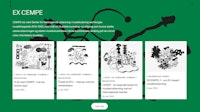Damla Tahirbegi sheds light on this important topic in her master thesis by exploring higher music education students’ experiences and management of MPA.
Why study performance anxiety?
Existing research on the prevalence of MPA among professional and student populations suggests that the phenomenon is widespread and sometimes problematic for a number of musicians. The students Damla interviewed for her Master’s study unanimously highlighted the influence of their instrumental teacher on their musical learning, particularly in developing technical skills and musical interpretation. Some of the students, however, expressed that their teacher’s willingness to assist them was only limited to developing those skills, but rarely about the emotional aspects of performing music. Therefore, many of them mentioned that they could benefit from more continuous and well-rounded institutional support on the management of their MPA. The findings of Damla’s Master’s thesis provided implications for the broader community of students and educators, as it identified some of the ways to address students’ needs to regulate performance anxiety. Her thesis suggests that those who are involved in educating musicians should consider ways to facilitate emotion-regulation and self-regulated learning strategies through instructional practices. Additionally, she identified a need to implement a variety of community initiatives increase MPA awareness within the institution.
Damla, herself studied violin performance at the Royal Conservatoire of Music in Toronto and later on completed a Bachelor's of Music at McGill University, Montreal. Her performance background benefitted her during the interview process as it provided greater insight and awareness into conversations surrounding MPA.



